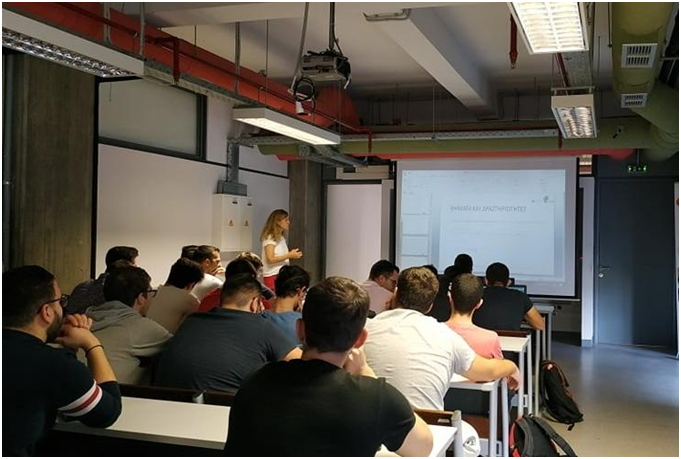
HERA was deployment in the Technology in Education course of the Department of Electrical and Computer Engineering of the University of Thessaly. The course is an elective in the 5th semester of the undergraduate curriculum. It is typically attended by 140 students each year. The course focuses on the deployment of technology as an educational tool in lifelong learning contexts that target the needs of diverse groups including school learners, higher education students, adult learners, vocational learners, professionals, and others. It also analyses traditional and modern learning methodologies such as learning through problem solving, collaborative learning, learning with action, experiential learning, game-based learning, and more.
In the fall 2019 semester students were involved in a review suggesting overviews of potential scenarios to be fully developed and integrated into the HERA digital learning game for active learning. Approximately 140 students engaged in this activity. At that time, the students introduced 24 non-trivial scenarios the solution to which requires the integration of knowledge from diverse thematic areas in the curriculum. Examples of suggested scenarios include:
- Design of infrastructure for a fast, fiber-optic internet service for a city.
- Design of a green city.
- Planning for energy independence of public buildings.
- Protecting a city from earthquakes.
- Design of a car pooling service for a city.
- Design of a simulation services for the medical sector.
- Design of an electrical circuit simulator.
- Providing adequate water and energy resources to islands communities.
- Protecting a city from floods.
- Designing a fault tolerant energy system.
- Designing a traffic monitoring service.
- Protecting a city from fire.
- Designing a mobile network.
- And more …
Students voted on their preferred scenario, with the winning team receiving a symbolic prize.
Student engagement continued in the fall-winter 2020 semester. At that time, students were actively engaged in the review and piloting (learning experiment) of the digital learning game. During the piloting activities students used the learning game in active educational contexts to solve challenges related to their studies. They worked in groups of 4 – 6 individuals creating new scenarios and testing the functionality of the game. A total of 24 teams were created. Approximately 120 students were engaged in this activity. Notably this group was separate from the one that engaged in 2019. The total number of students that engaged with the HERA game over 2 years was over 250.
Upon completing their use of the game, students participated in a review providing feedback by responding to the interview questions identified in the focus groups as well as filling in the quantitative questionnaires for documenting their experiences and suggestions for enrichment. Student feedback was integrated into the HERA learning game in the spring of 2021, ensuring that the viewpoints of the target higher education community are taken into account in implementation.
